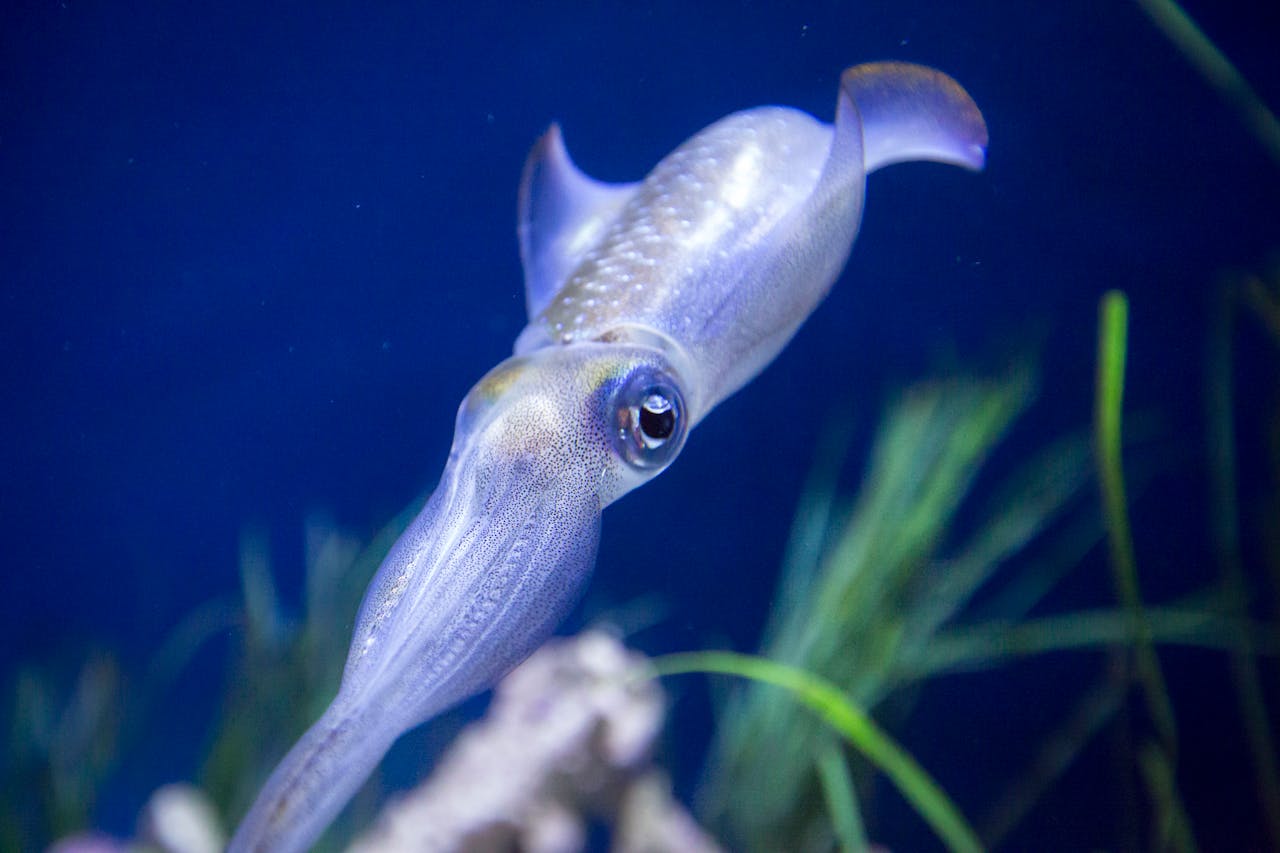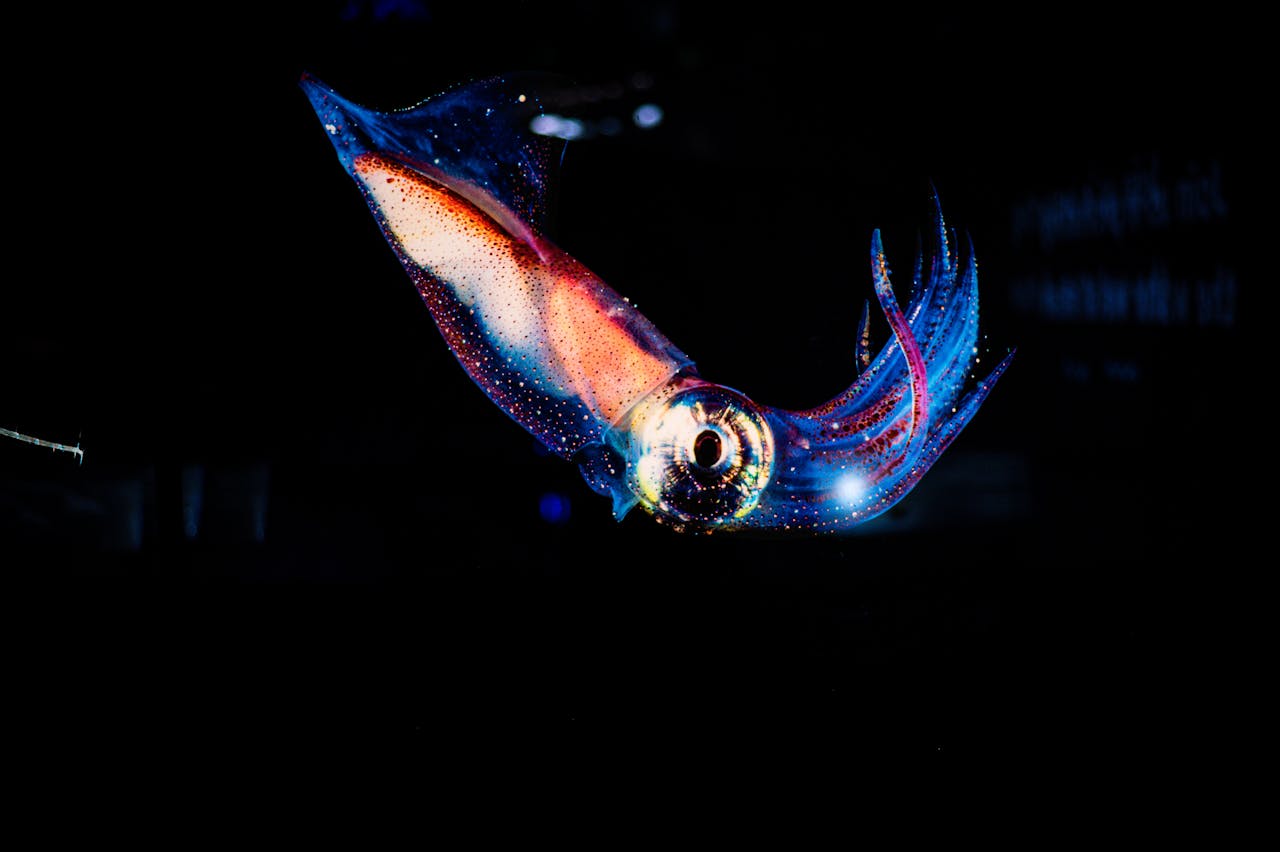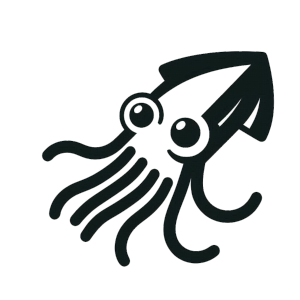Spirit animal
What is it like to be a squid? How would it feel to be an octopus squeezing through a hole barely larger than its eye? Why should you consider the cuttlefish, bursting out with its alien-like intelligence in a wash of colour?

Why did I turn to these creatures when I was at my lowest, a year into an illness that seemed unshakeable? And could they offer us the spirit animal of effective, sustained habit change?
As Peter Godfrey-Smith, the scuba-diving philosopher, puts it: “mischief and craft” are plainly the characteristics of these creatures (collectively, the cephalopods). Sometimes you need a bit of mischief and craft to get yourself out of a tight spot: this roving, curious psyche.
You can take a fish out of water, but an octopus can work its way around practically any environment that gives it what it needs. And turn it to its advantage. For instance: they have deliberately sabotaged outflow tubes in a laboratory to flood the equipment.
So is it really any surprise that they gave me inspiration when faced with my own experiment in living with compromised health - having a trickier companion for a body?
The Squid’s Form and Fluidity
Compared to my own limitations and hard edges, the squid’s body lacks definite form. A bundle of energy and possibility, open on all sides. No sides, even, but a spilling out to the world, from their hat-like internal shell. And the octopus makes do without even that. Virtually no fixed body-map or frame left at all (its beak is the only hard bit of it). It seems everywhere and nowhere at once.
Of course, we can’t know what it is like to be a squid or an octopus. But imagining it shakes us out of what we think we know about action.
Distributed Intelligence
One strange thing about these animals is how their brains work, spread throughout their bodies. An octopus, for instance, has around 60% of its neurons in its arms. These tentacles don’t wait for orders; they make their own decisions, grasping and tasting as they go. The central brain guides, but the arms figure out the details.

That’s not so different from us. When I set my running gear out the night before, the decision is half made already. A notebook in my bag pulls me into journaling. A set time for meditation turns intention into routine. These are my “arms” thinking for me, taking the small actions that make the larger ones happen.
Our lives are shaped less by sheer willpower than by the systems we build around us.
You do not rise to the level of your goals; you fall to the level of your systems.
Research agrees: the best self-regulators avoid relying on willpower. They build plans and environments that make the path easier. Craft strategies, set in motion ahead of time.
Squiddity’s Approach
That’s the principle behind Squiddity: reflection on habits. In large studies, habit reflection outperformed nearly every other method. It is about feedback - the central brain pausing to ask: how are my systems running? Not just toughing it out, but setting things up so effort carries us naturally forward. Recruiting our problem-solving craftiness to avoid it being hard work in the first place.
Our squid buddy would approve.
I created Squiddity to bridge the gap between the actions I needed to take to improve my health and putting these into practice. Take breath work: I understood its potential – on good days, it seemed to recharge me completely – yet it didn’t reliably become a daily habit.
Making time for “speed journaling” on how I felt about it helped close that gap. After all, the point of the breath work exercises was to reclaim a sense of mental clarity. If I could see that making time for it gave results, I'd be encouraged to do more. By noting the benefits each day and how I made them happen, I could clearly see my progress.
Where Tracking Goes Wrong
Many people try habit trackers but end up quitting. Traditional habit-building often becomes a source of frustration rather than support:
- Rules like “never miss two days,” are too restrictive
- Habit-ification of everything creates overwhelm and reduces enjoyment
- Overly specific habit definitions feel rigid and hard to sustain
Squiddity gets around these problems. By making the focus meaningful reflection, we buy ourselves some leeway on how strict we need to be with our tracking. Squiddity is designed for real life — messy, unpredictable, yet full of potential.
Time to Try Something New
Squid are remarkable for their vivid, ever-changing colors—an eloquent form of expression unique to each individual. This dazzling variety of visual chatter mirrors the way Squiddity approaches habits: personalised, colourful, and dynamic. As you use the app, your calendar gradually fills with colour, visually representing your own evolving journey.

The squid moves through its world with fluid curiosity and openness, relying on craft, creativity, and subtle adaptation rather than rigid control. Squiddity invites you to embrace this spirit: building your habits as a colourful, flexible reflection of your life, seen in progress and felt in quiet transformation.
